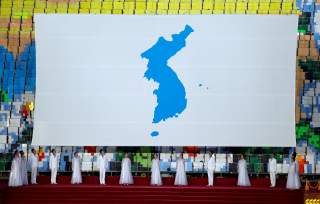The Hanoi Summit – We Asked Lindsay Cohn What Happens Next in U.S.-North Korea Relations
"Our chances of militarized conflict have gone up, the U.S. is likely to be the initiator, and we may have very few friends on our side."
Editor’s Note: Looking for more opinions on where we go after the Hanoi summit? Check out all 80 expert takes on where U.S-North Korea relations go next here.
Last time I discussed the Hanoi Summit I said there were two main potential outcomes: either a deal of some kind that mostly gave the DPRK what it wanted (i.e., no rollback of their nuke program; at most an inspections regime), or a breakdown that could turn dangerous. I thought the deal was slightly more likely, but I was wrong. We got the breakdown.
Now what?
Kim is following the usual playbook, acting aggressively to shift the goalposts for the next round of negotiating. That ups the pressure on the United States to do something to show we aren’t being played.
The Trump administration is sending mixed signals. Before the summit, Trump said that as long as there was no testing, he would be satisfied. Then the summit failed, and now Steve Biegun says that the United States will not pursue a stepwise approach to denuclearization and wants everything shut down before it will even consider removing sanctions. As we know, this is a non-starter of a deal. There is no way the DPRK will agree.
So now there are two possibilities again: one is that hardliners within the administration, notably John Bolton, win out, and get, e.g., a strike on the missile site Kim is refurbishing. One must assume that Kim knows that this is a possibility, and may even be refurbishing the site as a win either way: if it gets blown, it’s certainly not his only or most important one, and then he has justification for retaliation that China will back (this is important: China appears to have made it clear to Kim some time ago that if he initiates the violence, China won’t help him). If the U.S. restrains itself and wants to keep talking, then Kim has an extra bargaining chip.
The other possibility is that Trump will disagree with the Boltons around him, and try for another summit, probably timed to be an election talking point. In this scenario, Trump may defy his hardline advisors and go for the deal that I expected to happen at Hanoi. The purpose would be to show his base that he is making progress/getting a “win”, and possibly to make forward posture/commitment to allies vs security on the border a campaign issue.
Bottom line, I think our chances of militarized conflict have gone up, the United States is likely to be the initiator, and we may have very few friends on our side.
Lindsay P. Cohn is an Associate Professor at the U.S. Naval War College. The views in this article are her own and do not represent those of the USNWC or U.S. Government.
Image: Reuters

